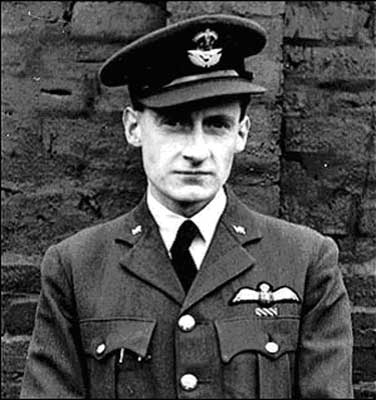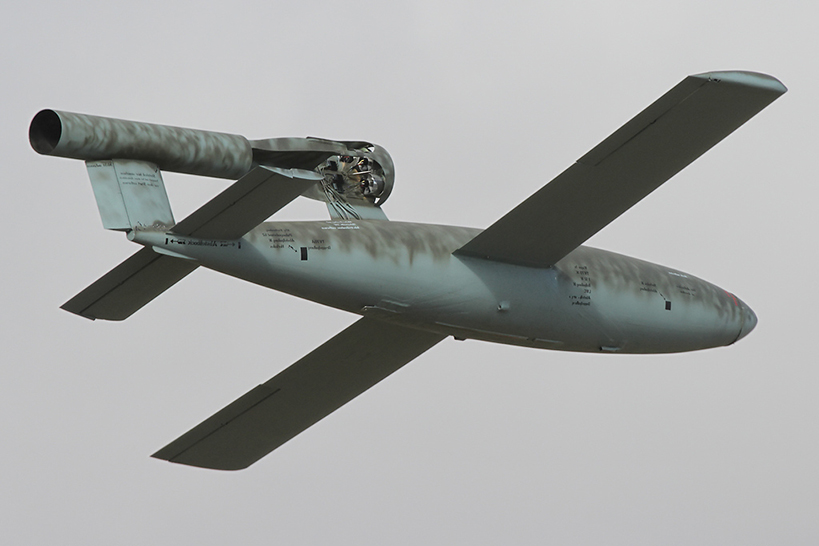Barwell, Eric Gordon
- Date of birth:
- August 6th, 1913 (Haverhill/Suffolk, Great Britain)
- Date of death:
- December 12th, 2007 (Cambrifgeshire, Great Britain)
- Nationality:
- British
Biography
Service Number 77454.
Eric Gordon Barwell was born in Haverhill, Suffolk. He was educated at Wellingborough School, later working in the family business near Cambridge.
In July 1938 he joined the RAFVR to train as a pilot at Cambridge. At the outbreak of the war he was called up and completed his training when he was commissioned. He joined No. 264 Squadron in February 1940 which flew from Manston in Kent during the evacuation of the British Expeditionary Force from Dunkirk. During two patrols on May 29 1940 the squadron was credited with shooting down 37 enemy aircraft.
Barwell and his gunner accounted for a Messerschmitt Bf 109 and, on a second patrol, they shot down two Stuka dive-bombers. Two days later they destroyed another Bf 109 off Dunkirk.
Barwell also attacked some Heinkel bombers that were attempting to bomb the convoy of "little ships" sailing across the Channel with evacuees. One of the enemy was shot down, but return fire hit his Defiant's engine, causing a leak in the cooling system. When it became obvious that he would be unable to reach the English coast he kept the line of ships in sight - it stretched from the French coast to Kent - and, when his engine seized, he ditched his aircraft between two destroyers.
His gunner was knocked unconscious, and Barwell struggled to free him and hold his head above water before they were rescued.
Barwell achieved his first night-time success on April 10 1941 in a Boulton Paul Defiant, when he and his gunner destroyed a Heinkel bomber near Beachy Head and probably destroyed a second.He was transferred to another Defiant squadron, No 125 Squadron, as a Flight Commander and in early 1942 the squadron received the Beaufighter. His first combat in the aircraft was on the night of July 1 1942, when he attacked a Dornier bomber; but when his cannon jammed he had to use the less effective machine guns and could claim only a "damaged".
On the same day Barwell learned that his elder brother Philip, who was the group captain commanding the fighter base at RAF Biggin Hill, had been shot down and killed over the Channel by friendly fighters. After a six-month rest Barwell returned in March 1943 to No. 125 Squadron, which was soon equipped with the Mosquito.
On the night of April 23 he destroyed a Junkers 88 over Warminster. He flew many night patrols in support of the Allied landings in Normandy, and on June 24 he intercepted another Junkers, which was trying to attack shipping off the mouth of the Seine.
He stalked the enemy aircraft for 30 minutes before finally shooting it down. Barwell's final success in the air came on August 10 when he shot down a V-1 flying bomb as it approached the coast of Kent.
The following month he was posted to command the experimental squadron in the Fighter Interception Unit, flying the Tempest and Mustang, two of the fastest piston-engined fighters.
On promotion to wing commander he took control of night fighter operations at the HQ of the Second Tactical Air Force. He returned to operations in April 1945 and was released from the RAF in September 1945.
In addition to the awards mentionend below he received the Air Efficiency Award.
He lived near Cambridge, and was in regular demand to sign aviation books and prints at the nearby Imperial War Museum at Duxford.
He mastered the computer in old age, and when he was 90 he bought himself a rowing machine "to keep fit".
Promotions:
December 1939: commissioned as Pilot Officer
December 10, 1940: Flying Officer
July 1, 1941: Acting Flight Lieutenant
December 10, 1941: Flight Lieutenant
December 1941: Acting Squadron Leader
December 20, 1944: Squadron Leader
Semptember 1944: Acting Wing Commander
April 4, 1945: Wing Commander
Do you have more information about this person? Inform us!
- Period:
- Second World War (1939-1945)
- Rank:
- Flying Officer
- Unit:
- No. 204 Squadron, Royal Air Force
- Awarded on:
- February 11th, 1941
- Period:
- Second World War (1939-1945)
- Rank:
- acting Squadron Leader
- Awarded on:
- January 1st, 1943
- Period:
- Second World War (1939-1945)
- Rank:
- Acting Squadron Leader
- Unit:
- No. 125 Squadron, Royal Air Force
- Awarded on:
- August 15th, 1944
"This officer has completed a very large number of sorties and his example of keenness, determination and devotion to duty has been worthy of the highest praise. He is a most able flight commander whose untiring efforts have been reflected in the operational efficiency of the formation he commands. Squadron Leader Barwell has destroyed 6 enemy aircraft, 2 of them at night."
- Period:
- Second World War (1939-1945)
Sources
- Photo 1: The Battle of Britain London Monument
- Photo: The Battle of Britain London Monument
- - The South East Echo
- Buckle Cottage
- The Telegraph-Obituaries
- The Times-Obituaries
- The Battle of Britain Memorial
- The London Gazette Issue 35073 published on the 11 February 1941
- Supplement to The London Gazette Issue 35841 published on the 29 December 1942
- Fifth Supplement to The London Gazette Issue 36656 published on the 11 August 1944







